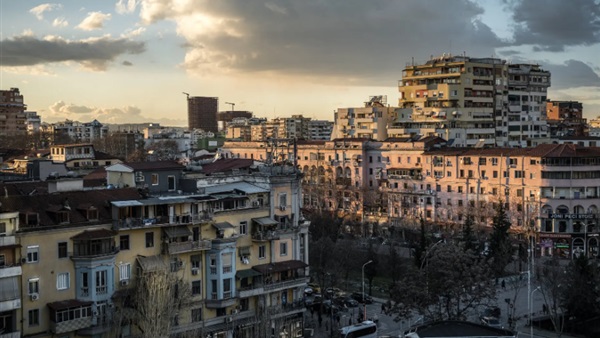Albania's Cyberattack: The Geopolitical Battles and Uncertainty Created by Iran's Onslaught

Albania, a small Balkan country with fewer than three
million people, has been plunged into uncertainty by Iran's massive
cyberattack, one of the biggest assaults in Europe on a NATO member since 2007.
The attack, which began with a stealthy penetration of government servers in
2021, but started causing visible disruption only last year, appears to be
Albania's sheltering of the Mujahedeen Khalq (M.E.K.), a secretive Iranian
dissident group, on its soil. The attacks, which affected the government’s work
and financial institutions, signaled the opening of a disruptive new front in
the cyberwarfare, what Prime Minister Edi Rama calls "an aggression
against the sovereignty of one country by another state."
Albanian customers at one of its largest banks got a shock
shortly before Christmas when a curt text popped up on their cellphones:
"Your account has been blocked. The balance of your account is zero. Thank
you." The messages, which turned out to be fake, were just part of the
attack that also involved the leak of a vast trove of confidential information,
including the names and addresses of more than a thousand undercover police
informants and the banking information for more than 30,000 people.
Hired by the Albanian government to investigate, Microsoft
attributed the cyberattack with "high confidence" to "actors
sponsored by the Iranian government" and identified M.E.K. as the
"primary target." The attack against Albania was probably
"retaliation for cyberattacks Iran perceives were carried out by
Israel" and M.E.K. The gravity of the sprawling assault posed a tricky
test for NATO, of which Albania is a member and enjoys protection under the
alliance's commitment to collective defense.
The ultimate target of the attack seems reasonably clear.
The attackers have been regularly denouncing M.E.K. as terrorists and demanding
that Albania shut down a camp run by the group near the port city of Durres or
face further mayhem. Former members describe M.E.K., which in 2016 moved many
of its followers to Albania from its previous base in Iraq, as a sinister cult.
The United States classified it as a terrorist outfit until 2012, but leaned on
Albania to offer shelter to thousands of its members after their camp was attacked
by Iraqi forces.
The polarized politics of Washington, where prominent
Republican hawks on Iran have been strong backers of M.E.K., have also played a
role in the cyberattack. The geopolitical battles involving Iran, Israel, and
the United States have further complicated the situation. NATO has limited
itself to pledges to "support Albania in strengthening its cyberdefense
capabilities" and denouncing "malicious cyberactivities designed to
destabilize and harm the security of an ally and disrupt the daily lives of
citizens."
Cyberattacks are a different form of aggression, and
"events are running ahead of us when it comes to" them, said Prime
Minister Edi Rama. Albania has not invoked Article 5, the cornerstone of the
alliance, which says "an armed attack" against any of the allies in
Europe or North America "shall be considered an attack against them
all." As the attack continues, Mr. Rama lamented, "This is a
terrorist attack designed to create panic, to create fear, to fuel insecurity
and to make people believe that nothing is under control. They have planted
ticking bombs everywhere with no clear pattern about when and where these bombs
will blow up next."





